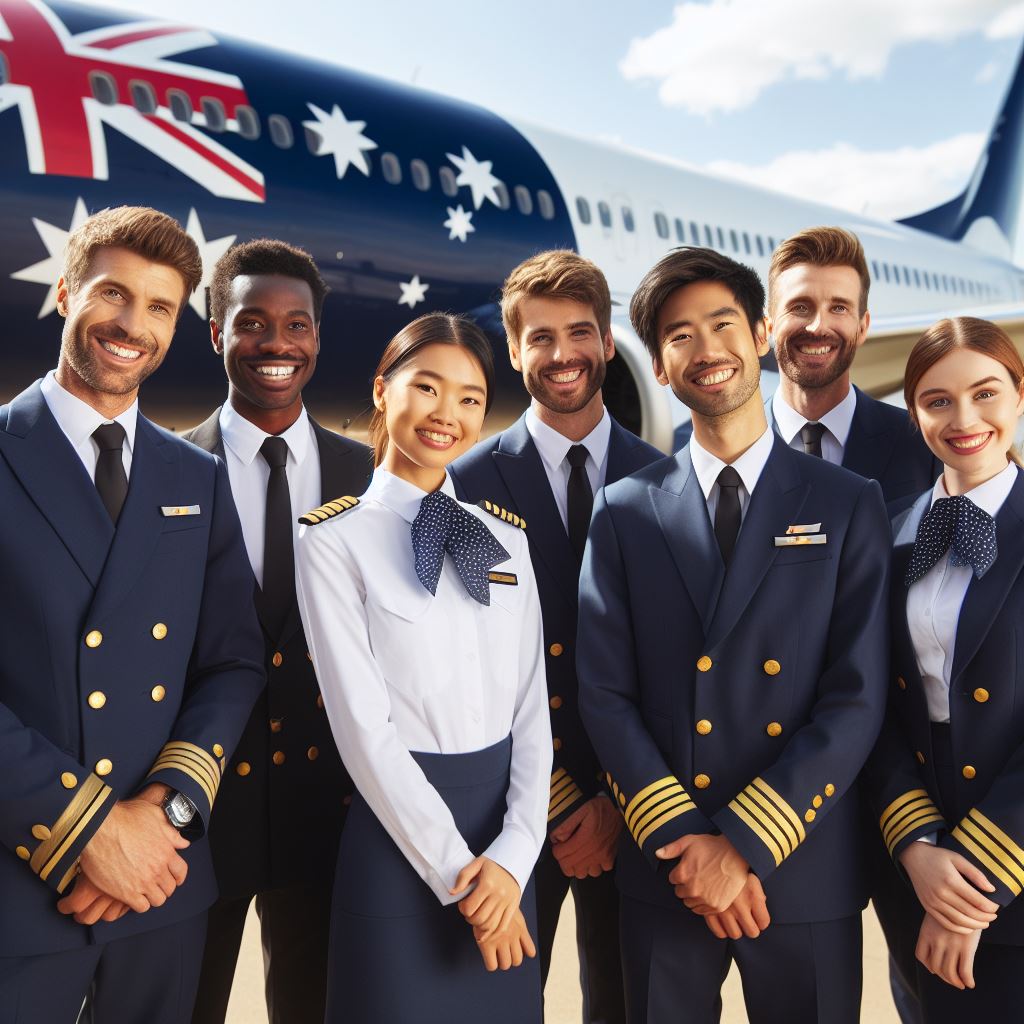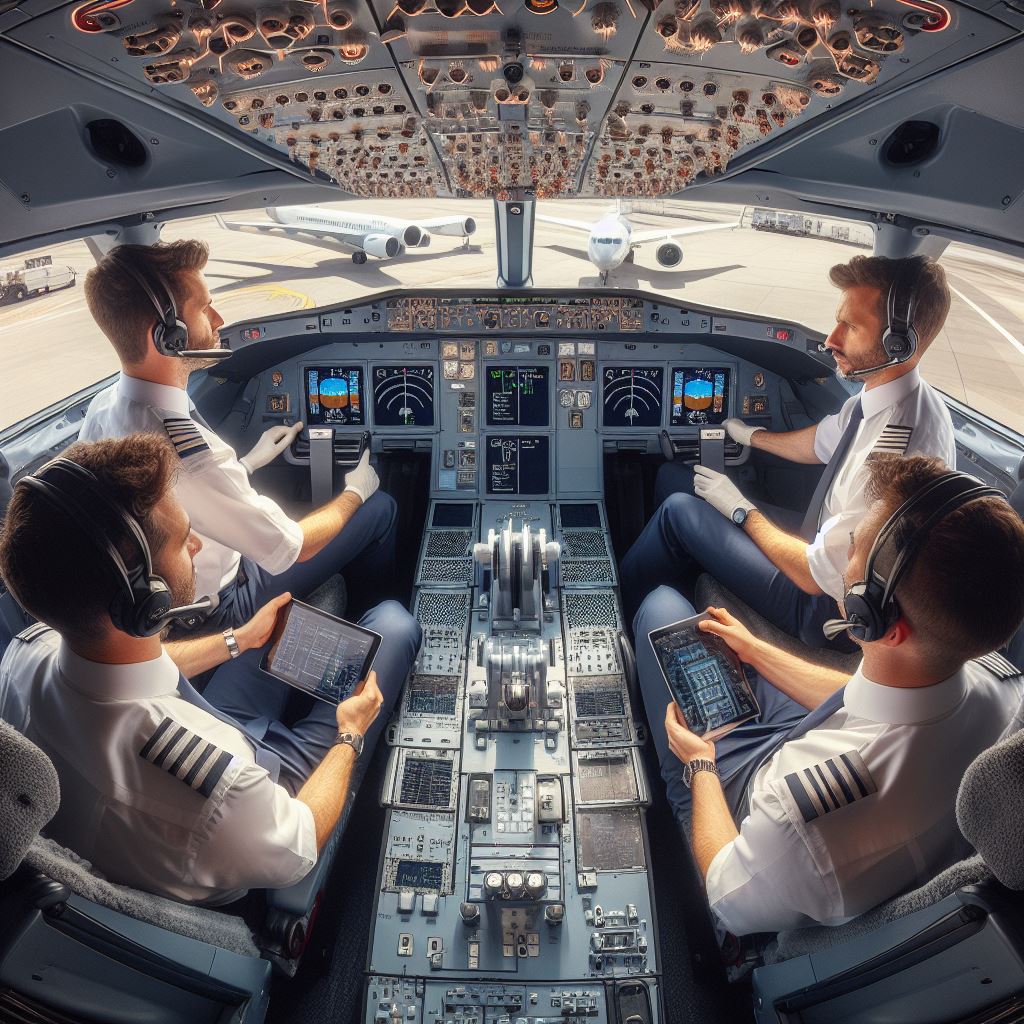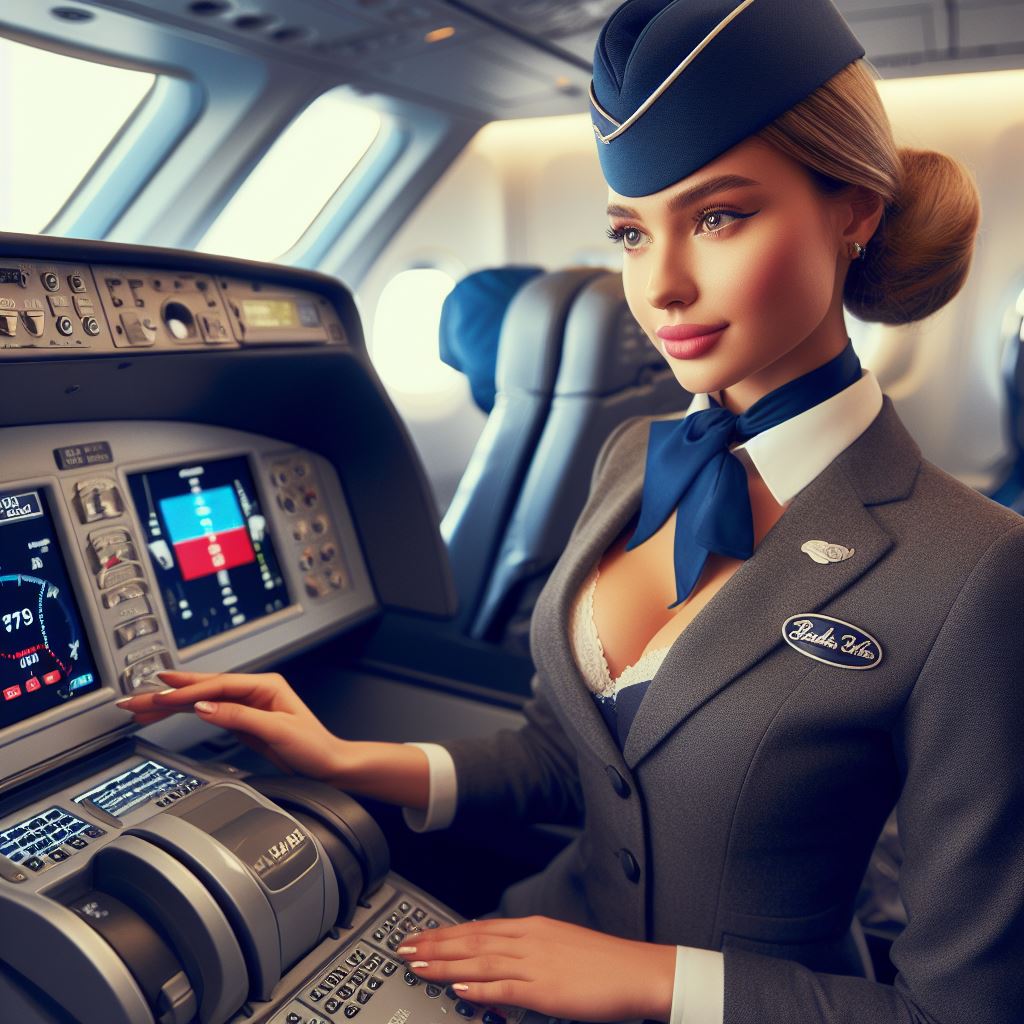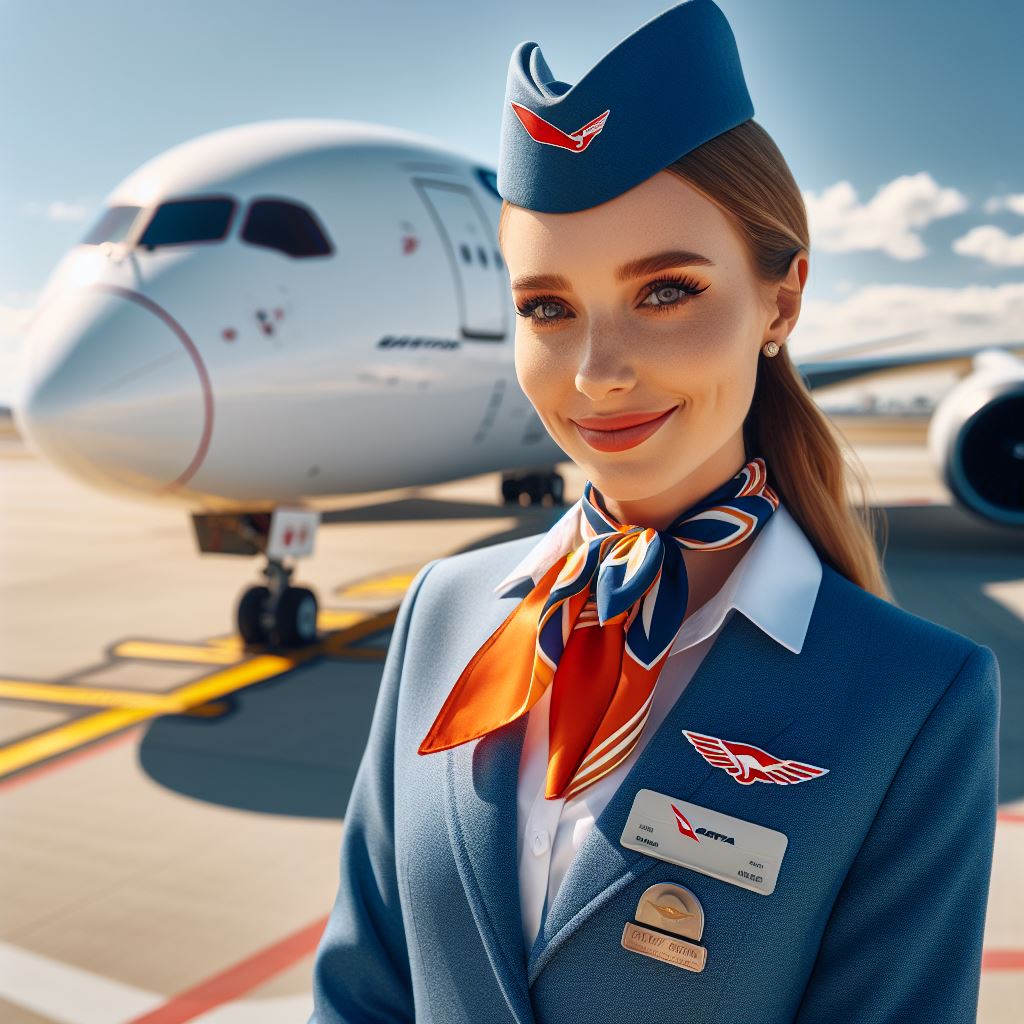Introduction
Australian Airlines, renowned for its exceptional service, meticulously selects highly skilled cabin attendants to ensure passenger safety and comfort.
This blog aims to discuss the airline’s attendant hiring criteria, which are crucial for maintaining its esteemed reputation.
By exploring qualifications, experience, and interpersonal skills, readers gain insights into the stringent standards upheld by Australian Airlines.
Understanding these criteria not only aids aspiring candidates but also offers passengers an appreciation of the airline’s commitment to excellence.
Through educational prerequisites, relevant experience, and a dedication to safety and professionalism, Australian Airlines sets a benchmark for cabin attendant recruitment.
This blog provides a comprehensive understanding of the attributes valued by one of Australia’s premier airlines, offering valuable guidance for individuals aspiring to join the aviation industry or seeking insights into recruitment practices.
By delving into the intricacies of the hiring process, readers can gain valuable knowledge about what it takes to become a cabin attendant with Australian Airlines and contribute to the airline’s continued success in delivering exceptional service to passengers.
General requirements for Australian airline attendants
Minimum age and height
- Applicants must meet the minimum age requirement set by Australian airlines.
- The minimum age for airline attendants is usually 18 years old.
- Additionally, there may be a minimum height requirement for applicants to ensure they can reach overhead compartments.
- The minimum height requirement is typically around 160-165 centimeters.
Physical fitness and health requirements
- Australian airline attendants need to maintain a high level of physical fitness.
- They should possess good overall health and be able to undergo a rigorous training program.
- Candidates must pass a medical examination to ensure they are fit to perform the duties required.
- This examination may include assessing the applicant’s vision, hearing, and general physical well-being.
Australian citizenship or permanent residency status
- Australian airline attendants are required to be either Australian citizens or have permanent residency status.
- This requirement ensures that attendants have the legal right to work in Australia.
- Proof of citizenship or residency status may be required during the hiring process.
- Applicants who do not meet this criterion may not be considered for the position.
Language proficiency
- Excellent communication skills are vital for airline attendants to interact with passengers and colleagues.
- Fluency in English is a must, as it is the primary language used in Australian airlines.
- Applicants might need to undergo language proficiency tests or demonstrate their language skills during the interview process.
- Being multilingual can be an advantage as it allows attendants to assist passengers from diverse cultural backgrounds.
Educational qualifications
- While specific educational qualifications may not be mandatory, a high school diploma or equivalent is generally preferred.
- Having a higher level of education, such as a bachelor’s degree, may enhance an applicant’s chances of being hired.
- Relevant certifications, such as first aid or customer service training, can also be beneficial in the selection process.
- Airlines often prioritize candidates with a combination of education, certifications, and relevant work experience.
Generally, individuals aspiring to become Australian airline attendants must meet several general requirements.
They should be of the minimum age and height specified by the airline.
Additionally, they need to have physical fitness and good health, as determined through medical examinations.
Citizenship or permanent residency status is mandatory, along with proficiency in the English language.
While specific educational qualifications are not always necessary, having a high school diploma or higher education can be advantageous.
Obtaining relevant certifications and having relevant work experience can further increase the chances of being hired as an airline attendant in Australia.
Read: Women in Aviation: Aussie Pilots Breaking Barriers
Key skills and attributes required for Australian airline attendants
Excellent communication and customer service skills
Australian airline attendants are expected to possess excellent communication skills to effectively interact with passengers.
They need to convey information clearly and professionally, ensuring passengers feel comfortable and informed throughout their journey.
Attendants must have exceptional customer service skills, as they are the main point of contact for passengers.
They should be able to handle various customer needs, such as answering questions, providing assistance, and addressing concerns or complaints.
Attendants should have a friendly and approachable demeanor, making passengers feel welcome and valued.
They should be attentive listeners and effective speakers, capable of communicating effectively with people from diverse backgrounds.
Multicultural awareness and adaptability
In a diverse and multicultural society like Australia, airline attendants must have multicultural awareness and adaptability.
They interact with passengers from different cultures, languages, and customs, requiring a high level of sensitivity and respect.
Attendants should be knowledgeable about different cultures to accommodate the needs and preferences of passengers.
They should be culturally sensitive, avoiding potential misunderstandings or offensive remarks.
Flexibility and adaptability are crucial traits for attendants, as they may encounter unexpected situations or encounters with diverse passengers.
Attendants should be open-minded and able to adjust their service approach to meet the unique needs and preferences of each passenger.
Problem-solving and decision-making abilities
As the face of the airline, attendants should possess strong problem-solving and decision-making abilities.
They need to think quickly and effectively to resolve any issues or conflicts that arise during flights.
Attendants should be able to handle various scenarios, such as flight delays, turbulence, or medical emergencies.
They should remain calm under pressure and make sound and rational decisions for the well-being and safety of passengers.
Moreover, attendants should be proactive in identifying potential issues before they escalate.
They should be able to apply critical thinking and problem-solving skills to find creative solutions and prevent further complications.
Teamwork and collaboration skills
Australian airline attendants often work as part of a team, requiring strong teamwork and collaboration skills.
They should be able to communicate and coordinate effectively with their fellow attendants, pilots, and ground staff.
Attendants need to work together seamlessly to ensure the smooth running of flights.
They should be able to delegate tasks, provide support, and assist their colleagues when needed.
Effective collaboration is essential for attendants to deliver excellent customer service.
They should share information, communicate changes, and work collectively towards creating a positive flying experience for passengers.
Resilience and stress management
Working as an airline attendant can be challenging and demanding.
Attendants need to develop resilience and effective stress management techniques to handle the pressures of the job.
They should be able to handle difficult passengers or challenging situations without letting it affect their performance or attitude.
Attendants must remain calm in stressful situations and manage their emotions and stress levels professionally.
Self-care and maintaining a healthy work-life balance are vital for attendants to cope with the demanding nature of the job.
They should prioritize their physical and mental well-being to provide the best service possible.
To sum it up, Australian airline attendants require a range of key skills and attributes to excel in their roles.
Excellent communication and customer service skills, multicultural awareness and adaptability, problem-solving and decision-making abilities, teamwork and collaboration skills, as well as resilience and stress management are essential for a successful career in the airline industry.
Read: E-commerce and Supply Chain Analysis
Specific training and certifications needed for Australian airline attendants
Australian airline attendants are required to undergo specific training and obtain certain certifications to ensure the safety and well-being of passengers onboard.
Here are the various types of training and certifications that are necessary for individuals aspiring to become airline attendants in Australia:
Cabin crew training courses
Safety and emergency procedures
Attendants must complete rigorous training programs that teach them how to handle various safety and emergency situations that may arise during a flight.
This includes familiarization with different types of emergency equipment and evacuation procedures.
First aid and CPR certification
Attendants are required to obtain a valid first aid and CPR certification to ensure they can effectively respond to medical emergencies onboard.
This training equips attendants with the necessary skills to offer immediate assistance to passengers in need.
Additional training on specific aircrafts
Once the initial cabin crew training is completed, attendants may undergo additional training specific to the aircraft they will be operating on.
This includes learning about the aircraft’s unique features, emergency equipment placement, and evacuation procedures specific to that aircraft model.
Ongoing training and professional development opportunities
After joining an airline, attendants are required to participate in ongoing training programs and professional development opportunities.
These programs aim to enhance their skills, knowledge, and competence in areas such as customer service, conflict resolution, and safety procedures.
Airlines prioritize the continuous improvement of their attendants to provide the best possible service to passengers.
All in all, becoming an Australian airline attendant requires individuals to undergo specific training and obtain certifications in various areas.
From safety and emergency procedures to first aid and CPR, attendants are equipped to handle emergencies and ensure the well-being of passengers.
Additional training on specific aircraft models further enhances their competency.
Ongoing training and professional development opportunities are also provided to continually improve their skills and abilities.
Australian airlines prioritize the safety and comfort of passengers and consider their attendants as valuable assets in achieving this goal.
Read: Data Analysis Techniques in Logistics
Your Personalized Career Strategy
Unlock your potential with tailored career consulting. Get clear, actionable steps designed for your success. Start now!
Get Started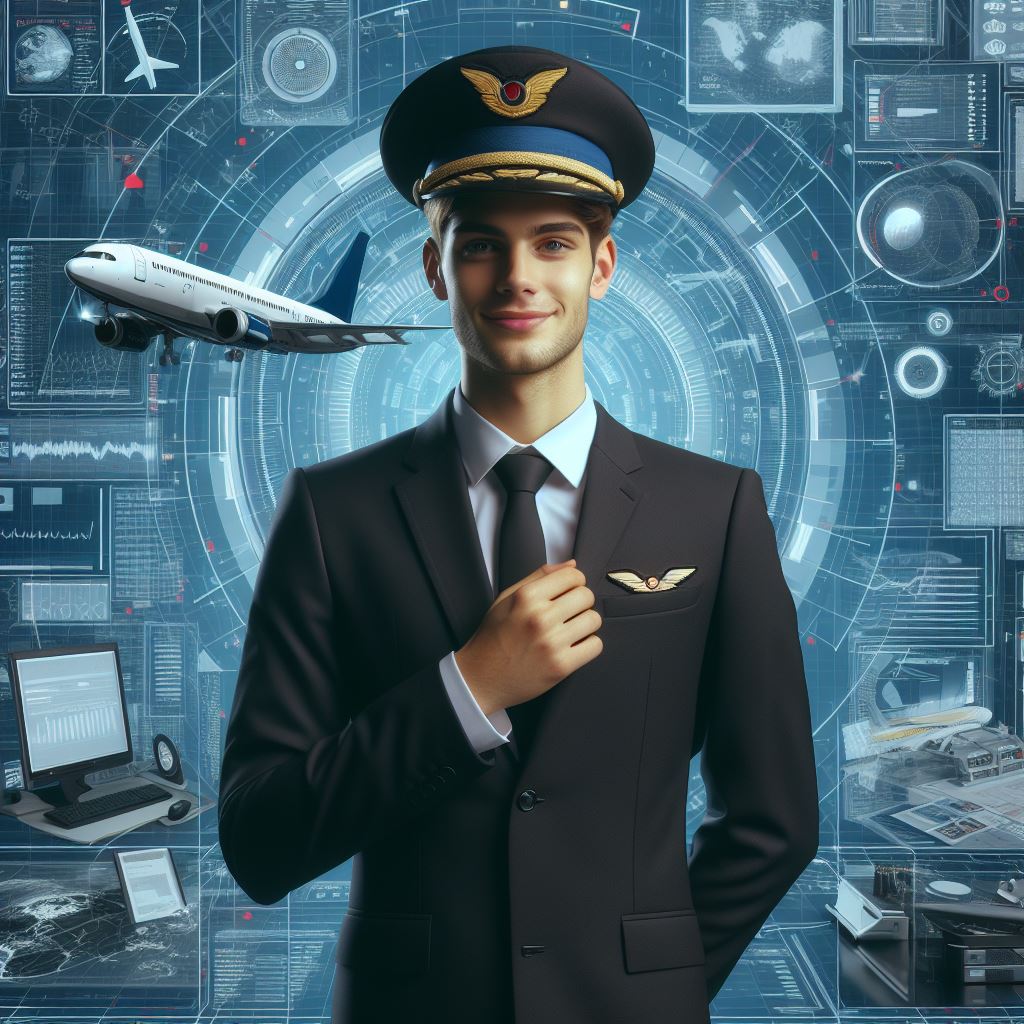
Find Out More: Career Path: From Rookie to Senior in Aus Skies
Selection process for Australian airline attendants
Initial application and resume screening
Upon receiving applications, Australian airlines conduct a thorough screening of resumes to shortlist candidates.
The screening process involves reviewing the applicant’s qualifications, experience, and relevant skills for the attendant role.
Candidates who meet the necessary criteria proceed to the next stage of the selection process.
Assessment day – group activities and individual interviews
Shortlisted candidates are invited to an assessment day, which is a crucial step in the selection process.
During this day, candidates engage in various group activities that simulate situations encountered in their role as attendants.
These activities are designed to assess teamwork, communication skills, problem-solving abilities, and customer service aptitude.
Furthermore, candidates undergo individual interviews, where they answer questions related to their experience, behavior, and scenario-based situations.
The assessment day allows the airline to observe the candidates’ interpersonal skills, appearance, and professionalism.
Based on the evaluation of each candidate’s performance, a final shortlist is generated.
Psychological assessments and aptitude tests
Candidates who make it to the final shortlist are required to undergo psychological assessments and aptitude tests.
These assessments evaluate the candidate’s mental resilience, stress management, problem-solving abilities, and emotional intelligence.
Aptitude tests measure critical skills such as spatial awareness, logical reasoning, and numerical ability.
The results of these assessments help airlines gauge the candidate’s suitability for the demanding nature of the attending role.
Stand Out with a Resume That Gets Results
Your career is worth more than a generic template. Let us craft a resume and cover letter that showcase your unique strengths and help you secure that dream job.
Get HiredMedical and background checks
Before a final job offer is extended, candidates have to pass medical examinations and undergo background checks.
The medical examination ensures that candidates are physically fit to fulfill their responsibilities in demanding and potentially stressful situations.
The background checks involve verification of employment history, criminal records, and any other relevant background information.
Airlines prioritize safety, security, and reliability, making these checks crucial in the selection process.
Only candidates who successfully pass all stages of the selection process are offered employment as attendants for Australian airlines.
the selection process for Australian airline attendants involves several stages, ensuring that only the most qualified and suitable candidates are hired.
From initial resume screening to assessment days, psychological assessments, and medical/background checks, each step aims to evaluate specific aspects of the candidates’ abilities.
Ultimately, the airline industry seeks individuals with strong interpersonal skills, problem-solving abilities, and physical and mental fitness to provide the highest quality service to passengers.
Read: Job Outlook for Supply Chain Experts
Tips and Advice for Aspiring Australian Airline Attendants
Research the Specific Airline’s Requirements and Values
- Start by thoroughly researching the specific airline you are interested in working for.
- Find out their specific hiring criteria, requirements, and values.
- It is essential to align your skills, experiences, and values with the airline’s expectations.
- Read through their website, social media pages, and job descriptions to gather important information.
- Understand their mission, company culture, and the image they want to project to their passengers.
Gain Relevant Experience in Customer Service and Hospitality
- One of the most crucial prerequisites to becoming an airline attendant is having customer service experience.
- Look for opportunities to work in customer-focused roles like retail, restaurants, or hotels.
- These experiences will help you develop strong interpersonal skills and the ability to handle various customer demands.
- Consider applying for internships or part-time jobs at airports or other travel-related establishments.
- This will give you exposure to the aviation industry and allow you to observe the work of airline attendants.
Prepare for the Interview and Assessment Day
- Be well-prepared for the interview and assessment day as they play a crucial role in the selection process.
- Research common interview questions and practice answering them thoughtfully.
- Prepare examples that demonstrate your ability to handle difficult situations and provide excellent customer service.
- Dress professionally and maintain a polished appearance to make a positive first impression.
- During the assessment day, showcase your teamwork, problem-solving, and communication skills.
Enhance Communication and Language Skills
- Effective communication skills are essential for airline attendants.
- Work on improving your verbal and non-verbal communication abilities.
- Practice speaking clearly, confidently, and using appropriate body language.
- Develop excellent listening skills to understand passenger needs and respond accordingly.
- Fluency in multiple languages can be an asset, as it allows you to communicate with passengers from different backgrounds.
Maintain Physical Fitness and Health
- Airline attendants have to endure long flights and perform physically demanding tasks.
- Engaging in regular exercise and maintaining a healthy lifestyle is crucial to meet these requirements.
- Focus on cardiovascular exercises, strength training, and flexibility exercises to stay physically fit.
- Eat a balanced diet, stay hydrated, and prioritize getting enough rest to ensure optimal health.
- Remember to take care of your mental well-being as well, as the job can be challenging at times.
Therefore, to increase your chances of becoming an Australian airline attendant, it is important to research the specific airline’s requirements and values.
Gain relevant customer service and hospitality experience to develop the necessary skills for the role.
Prepare for the interview and assessment day by practicing common questions and presenting yourself professionally.
Enhance your communication and language skills, and maintain physical fitness and overall health.
Follow these tips and advice to enhance readiness for a successful career as an airline attendant.
Learn More: Flight Attendant Training: What to Expect in Aus
Conclusion
Recap of the hiring criteria for Australian airline attendants
In closing, being an attendant for an Australian airline requires meeting specific criteria.
The criteria include excellent communication and customer service skills, a professional appearance, and ability to meet physical requirements.
Additionally, fluency in English and possessing a valid passport are essential.
Transform Your LinkedIn for Maximum Impact
Elevate your professional brand with a LinkedIn profile that attracts recruiters, showcases your expertise, and maximizes opportunities. Stand out in your industry with a profile built for success.
Boost ProfileTo improve hiring prospects, individuals should prioritize skill development and meet specified requirements.
Importance of meeting the requirements and developing the necessary skills
Meeting the requirements and developing the necessary skills is crucial for success in the role of an airline attendant.
The airline industry is highly competitive, and airlines value candidates who possess the skills and qualities needed to provide excellent service to passengers.
By meeting the criteria, individuals demonstrate their commitment to professionalism, safety, and customer satisfaction.
This increases their employability and helps them stand out from other applicants.
Therefore, it is vital to prioritize personal development and acquire the necessary skills to excel in the airline industry.
Encouragement for interested individuals to pursue a career in the airline industry
If you are passionate about travel, customer service, and adventure, pursuing a career in the airline industry is a great choice.
Despite the strict hiring criteria, this field offers exciting opportunities to explore different destinations, meet new people, and gain valuable experiences.
Embarking on a career as an airline attendant can lead to personal growth, cultural enrichment, and job satisfaction.
With dedication and continuous self-improvement, individuals can carve out a successful and rewarding path in this ever-evolving industry.

